Run: Will Gompertz reviews Domhnall Gleeson and Merritt Wever's Sky Comedy drama ★★★★☆
- Published
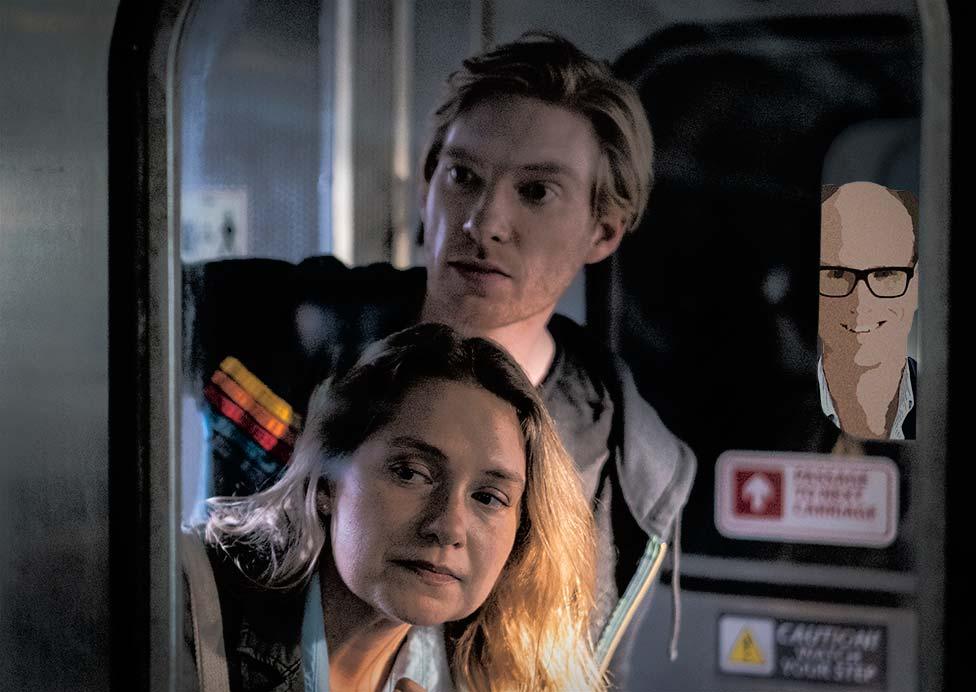
As a rule of thumb, any TV show or movie that relies heavily on its protagonists interacting with a mobile phone is best avoided. Watching someone look at an iPhone on telly is marginally less interesting than watching someone do it in real life, which, as we all know, is not interesting at all.
When a phone buzzes on screen we groan, just as we do when it happens on a train. In real life, that is. Not so in Run, a new eight-part drama created by Vicky Jones (Fleabag), where much of the action takes place on a trans-American choo-choo.
There's no "shushing"' from irate fellow travellers as Ruby (Merritt Wever) and Billy (Domhnall Gleeson) juggle phone calls, SMS messages, and drinking games on the New York to Chicago Express. They have no final destination, they are on the railroad to nowhere, having met in Manhattan on a whim after contacting each other out of the blue.
Ruby and Billy were college lovers back in the day.
They made a pact just like the one many of us have made at a similar time in our lives, promising if all else fails they'll get back together.
It's a sort of teenage insurance policy should your hunch that you can do better proves to be wrong.
The terms of their now 15-year-old deal were simple: either could text the word "run" to the other at any time. If the recipient texted back "run" they would both drop everything and meet at Grand Central Station in New York to take the first train out of town.
Billy triggers the process, pinging Ruby a text while she's sitting in her SUV in suburban despair having completed her out-of-town shopping duties. Her husband wants her home to sign for his new speakers when they arrive, she wants to go and try out her new yoga mat.
If ever there was a time for the "Run" text to arrive it's now.
It does, and off she and we go.


Billy Johnson (Domhnall Gleeson) and Ruby Richardson (Merritt Wever) carry out a pact they made years ago to "run" and travel across American together

Ruby and Billy are now in their mid-30s and carrying plenty of baggage - not suitcases and hat boxes, there was no time for any of that - but the problems and responsibilities that come with a decade-and-a-half of adult life. They agree not to talk about the past, at least not until they've become fully reacquainted, but then quickly realise it is easier said than done.
They can run away, but they can't hide. Not when they've got mobile phones.
Run has a When Harry Met Sally vibe, except it's not funny, even though it is playing on Sky Comedy. It is more rom-dram than rom-com, with the show improving immeasurably the darker it becomes.
The two central performances by Merritt Wever (Nurse Jackie, Into the Wild) and Domhnall Gleeson (The Revenant, Star Wars) are very good. Wever, in particular, is captivating on screen, showing us her character's state of confusion through a mixture of vulnerability and strength: one moment she's taking Billy down for his everyday sexism, the next she's in tears as she contemplates what she has left behind.
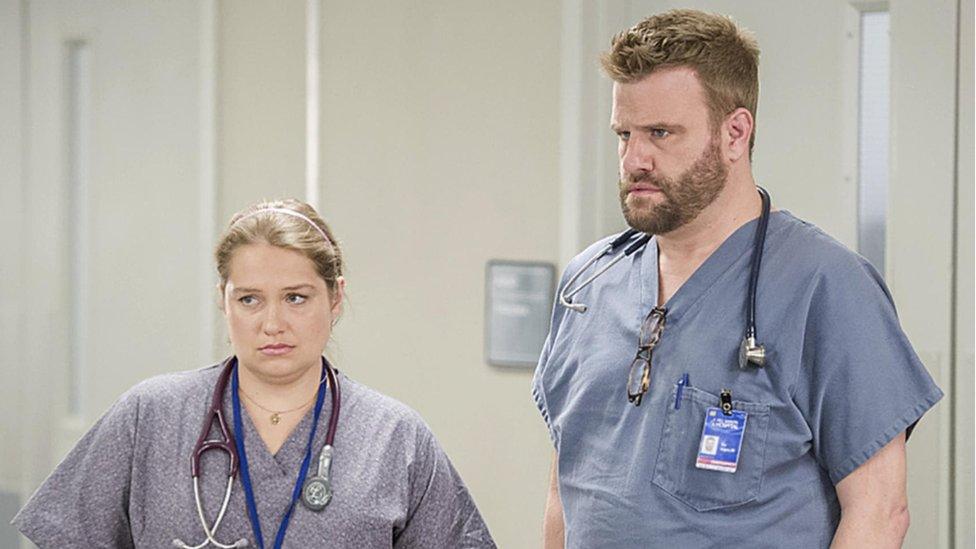
Merritt Wever won an Emmy Award for her performance as Zoe in Nurse Jackie (seen here with Stephen Wallem)

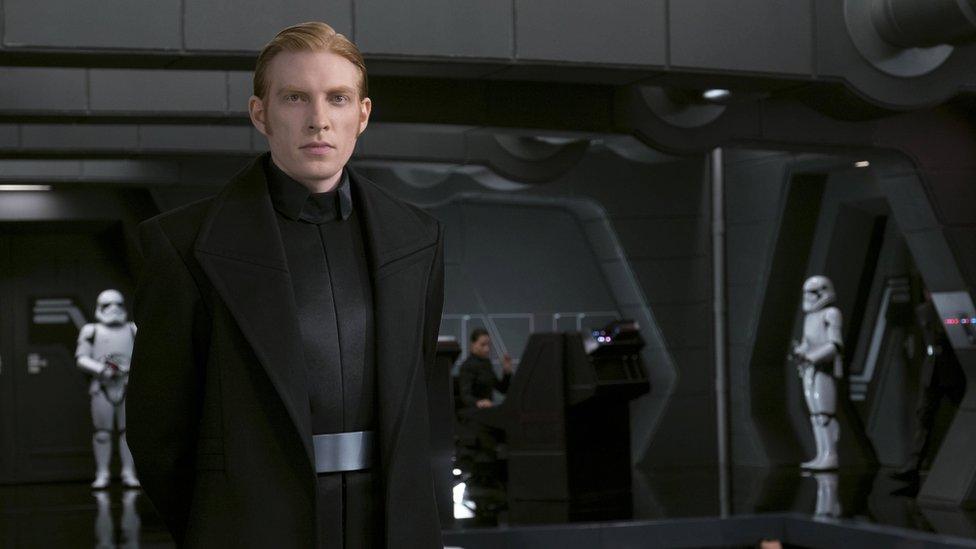
Domhnall Gleeson starred as the cruel General Hux in Star Wars: The Last Jedi
Billy is surer of himself.
He's made his name and money from being an inspirational speaker and life coach. Gleeson balances cocky showman and needy bloke with deftness, faltering only occasionally in some of the banter with Wever when he struggles to meet her level of presence.
As the series develops the repetitive shots cutting to his or her mobile phone are alleviated by clever plot twists, a growing chemistry between Wever and Gleeson, and well-crafted scripts that propel the drama along at the speed of their intercity train.
Archie Panjabi (The Good Wife) is a welcome addition to the party, although Ruby and Billy might not agree.
As is a short but sweet cameo from Phoebe Waller-Bridge, who gives us a Twin Peaks-meets-Frances McDormand performance: weird but worth it.
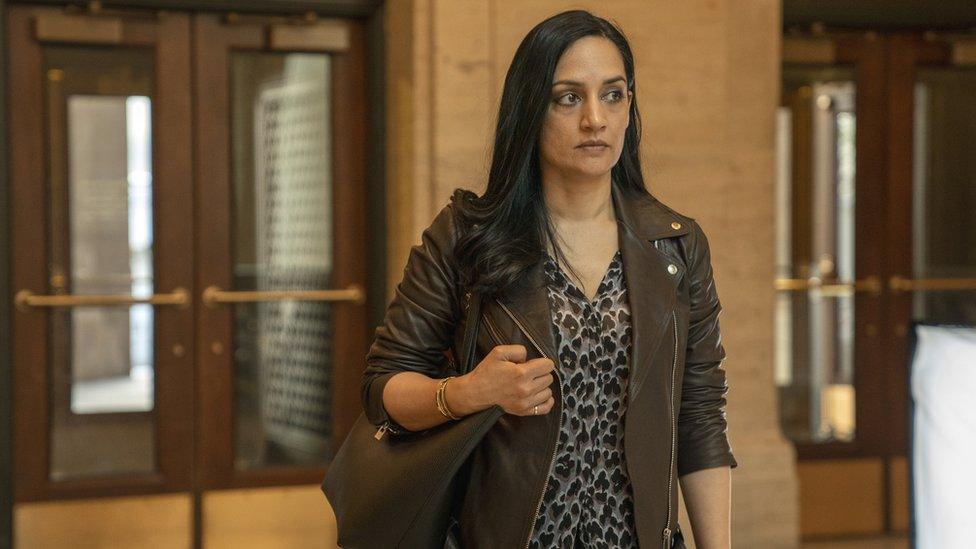
Archie Panjabi, who won an Emmy for her role as Kalinda Sharma in The Good Wife, plays Fiona, Billy's former personal assistant in Run

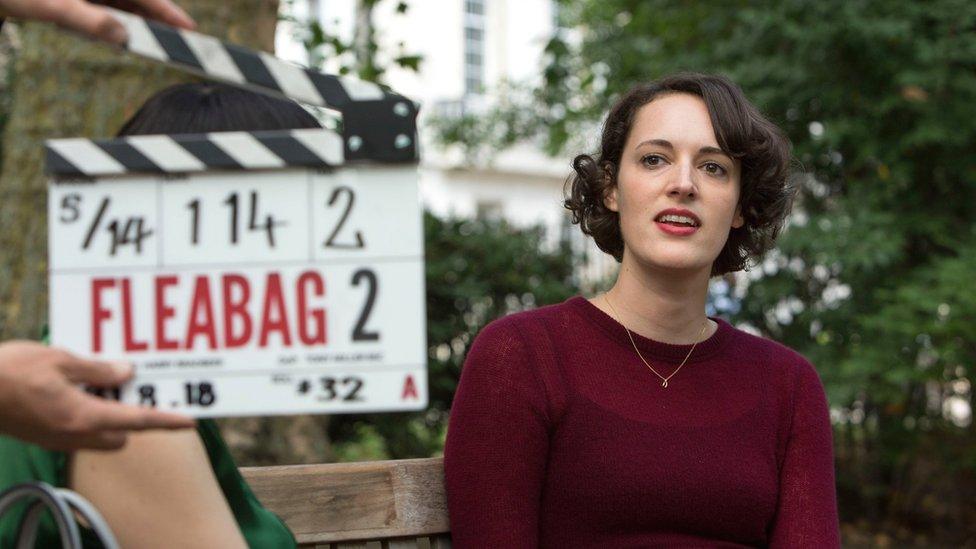
Phoebe Waller-Bridge achieved critical and popular acclaim for Fleabag, and guest stars in Run, as well as being one of the show's executive producers
Directing duties are shared by Kate Dennis and Natalie Bailey, both of whom do a decent job without straying beyond the tried and tested.
The same applies to the show as a whole, which is a grower, and better than good but not as good as great. Vicky Jones has brought bite and wit to the screen, but little invention.
Ruby's feminist put-downs conflict with more conservative male tropes: it's Billy who instigates proceedings with his text, it's Billy who has access to money, it's Billy who decides when they get it on, it's Billy who sets most of the rules of the game.
Ruby gives us glimpses of the independence and feistiness we've come to expect from female characters coming out of the Vicky Jones/Phoebe Waller-Bridge stable (both are listed among the exec producers), but she is way off a Fleabag or any of the female leads in Killing Eve.
That's not to say she won't become more spirited.
I've only seen five of the eight episodes, each better than the last. I'm looking forward to the next three and possibly discovering a 21st Century Bonnie and Clyde.
Recent reviews by Will Gompertz
Follow Will Gompertz on Twitter, external
